Cult Shop: denim fit for Brad Pitt – and lesser mortals
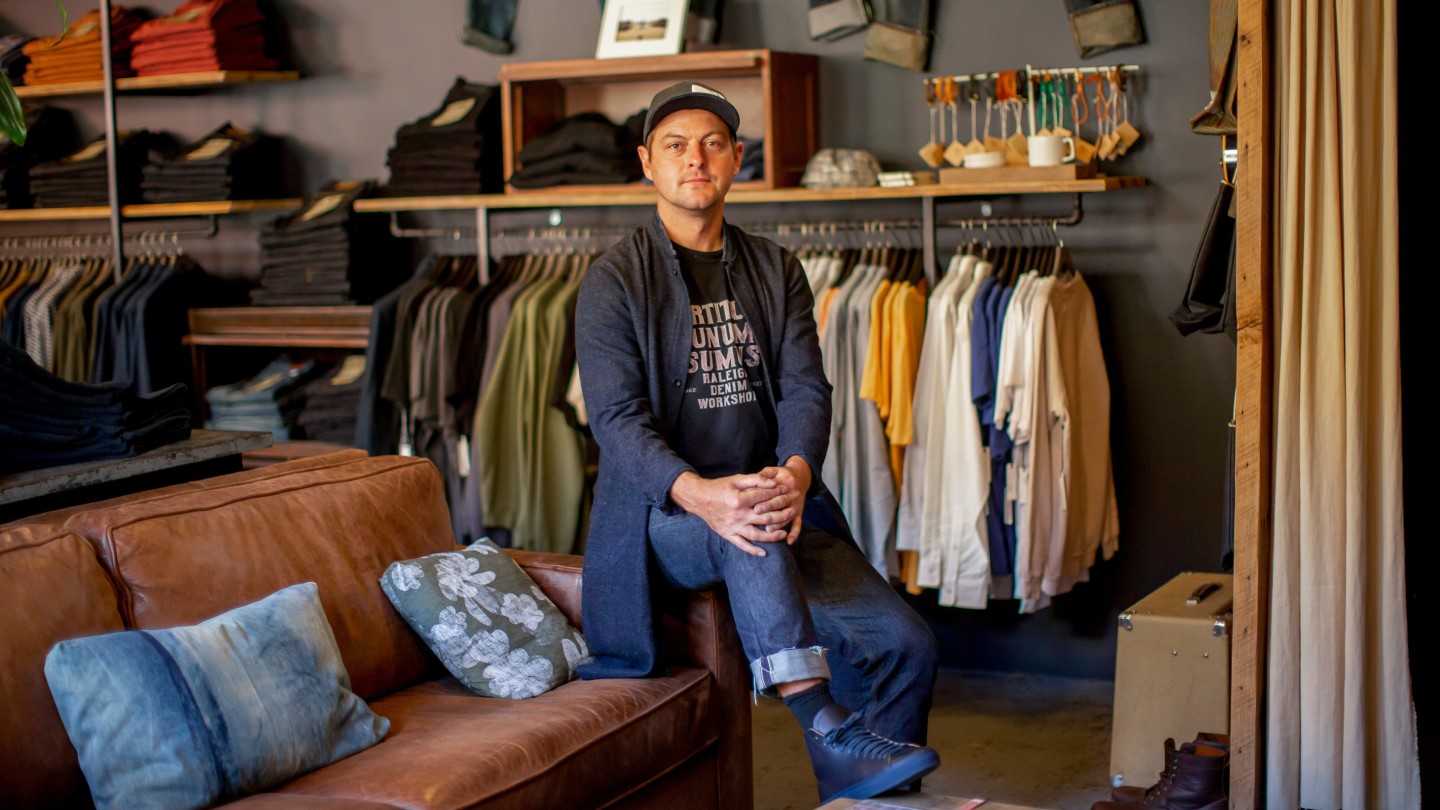
Simply sign up to the Style myFT Digest -- delivered directly to your inbox.
“You can’t do fashion in Raleigh.” This was the refrain high-school sweethearts Victor Lytvinenko and Sarah Yarborough were met with when they chose their North Carolina hometown to start making jeans. “Well, we didn’t want to do capital-F fashion anyway,” says Lytvinenko with the unhurried speech typical of Carolinians, “but we had something to say.”
Raleigh Denim Workshop began in 2008 as just that – a workshop filled with hand-operated machines to make jeans, from the Jones selvedge denims for men ($330) to women’s high-rise, wide-cut styles in deep green ($215), alongside an array of classic sweatshirts (from $150) and baseball caps ($65).
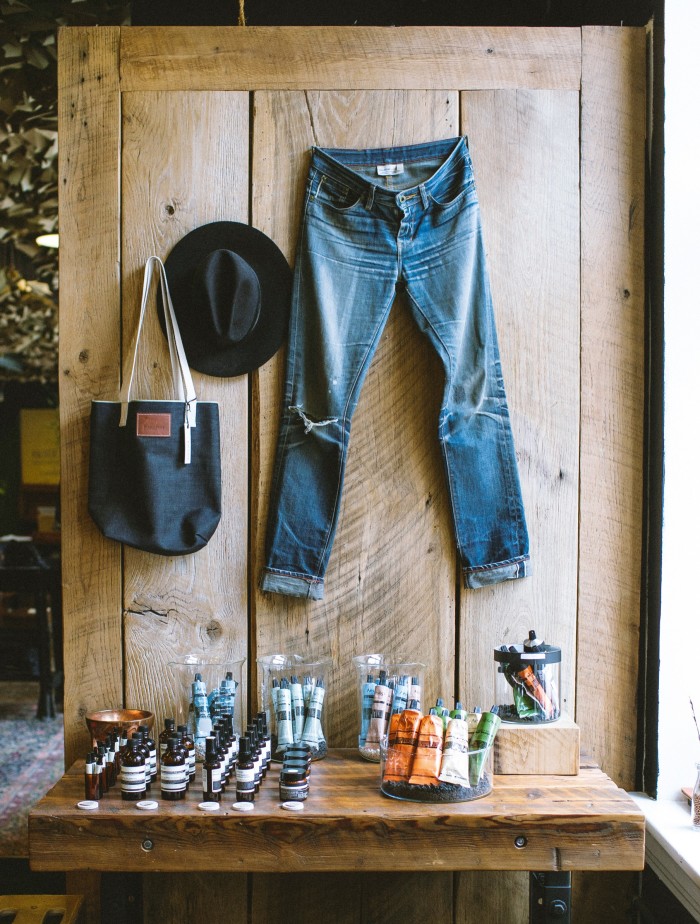
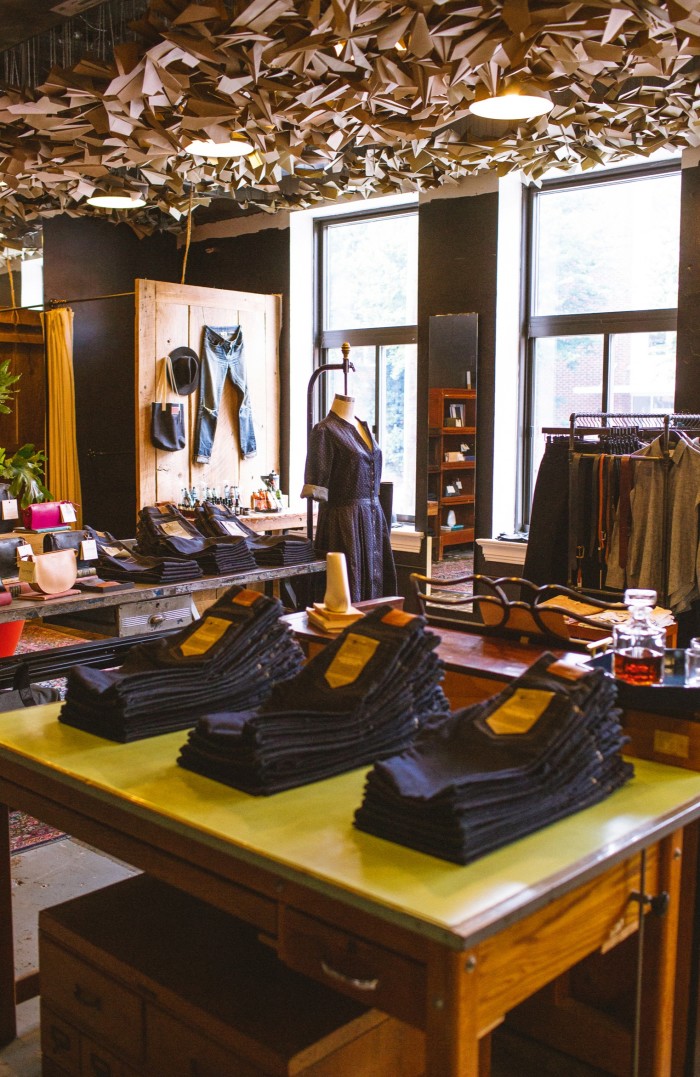
“Sarah and I have always been makers,” says Lytvinenko, but it was a job in a French restaurant, an interest in wine and a friendship with the owner of a vineyard that kickstarted the idea for the brand. On regular trips to NC’s wine country, the couple “started coming across all these boarded-up clothing factories, and then learned that the mill that had filed the patents for denim production was actually in Greensboro, NC. Some elements of the farm-to-table ideas I’d seen in cooking came to me. I thought, how can we apply these to other things?”
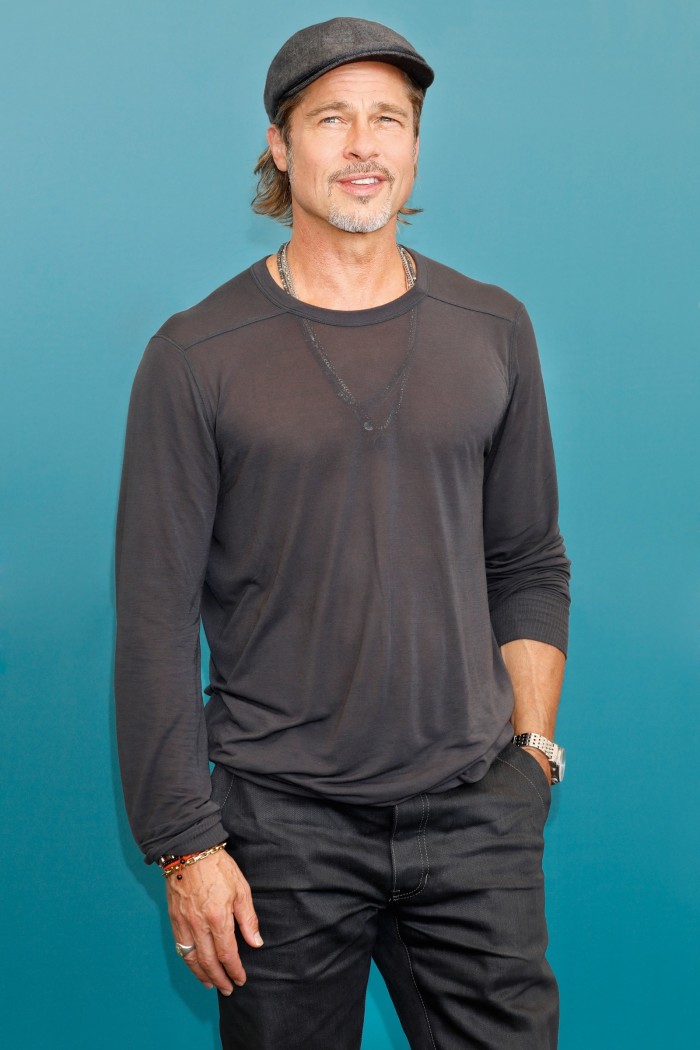
So Lytvinenko and Yarborough began to deconstruct the jean. “I wanted something that would make me feel more badass when I put it on – that if I woke up on the wrong side of the bed might make me want to be a better person. We obsessed over every stitch, every thread. Christel Ellsberg, pattern-maker at Levi’s in the 1960s and ’70s, helped elevate the fit, the construction, the details.” They began buying old machines and fixing them up. They also sourced farmers who would grow them the first-ever crop of certified organic cotton in North Carolina and had it spun, ginned and woven within 200 miles of the workshop.
Business began slowly but surely. The company’s own shop, The Curatory, arrived after two years of wholesale trading. “Because we didn’t go to fashion school and hadn’t worked in another company, we made all our rules based on fitting things on people in the store. We would make a small run, try it on 20 people and decide, say, that a leg opening should be a little bit smaller in sizes 36 and 38. We learnt all the intricacies of how fabric falls on different shapes. It was probably an absurd study of the human body to undertake, but I do think it makes us different.”
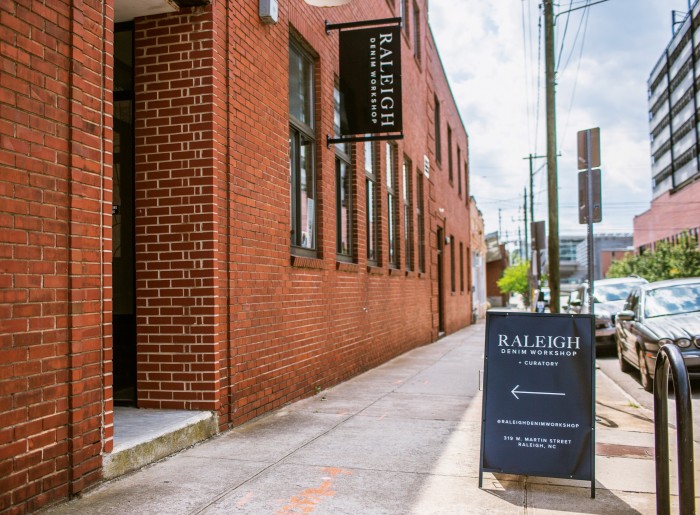
Today as you enter the building, part of Raleigh’s now-gentrified Warehouse District (Raleigh’s contemporary art museum has since opened up beside them), the first thing you see is the storefront, about 1,000sq ft. A drop ceiling is hung with 8,000 craft-paper aeroplanes, and that meticulously handmade feel follows through in the decor: whitewashed walls, knotted wood shelving and repurposed machine benches holding piles of jeans. They also stock made-in-NC products they really rate, such as Raleigh’s Escazú chocolate (from $7) and Burlington’s Haand ceramics (from $30 for a mug). Then there are small accessories labels they fell for on their travels, such as bags by Bleu de Chauffe (from $250), with which they’ve collaborated, and leather belts by De Palma from California (from $77).
To the left, a little doorway opens into a raw, unpolished space about five times the size of the shop. A hum comes from the machines, operated by 15 or 20 “jeansmiths”. The North Carolina state motto is written on the wall above the workbenches, and sewn into their jeans: “To be rather than to seem.”
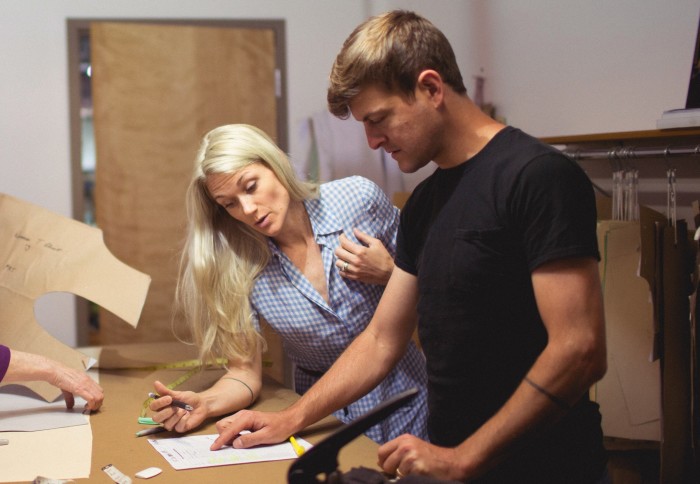
If the workshop is rough and ready, the shop feels welcoming: Persian rugs soften the concrete floors, and Lytvinenko thinks of it as a living room, especially for travelling musicians stopping off in Raleigh. “In pre-pandemic times we would offer people a coffee or a drink – and we’ve still got some Evan Williams bourbon ready in the decanter. There’s a sofa, a chess set, a piano and a guitar – it has a salon feel to it, and we’ve hosted small candlelit concerts. When some of the bigger bands come through town, they’ll stop and play a song.”
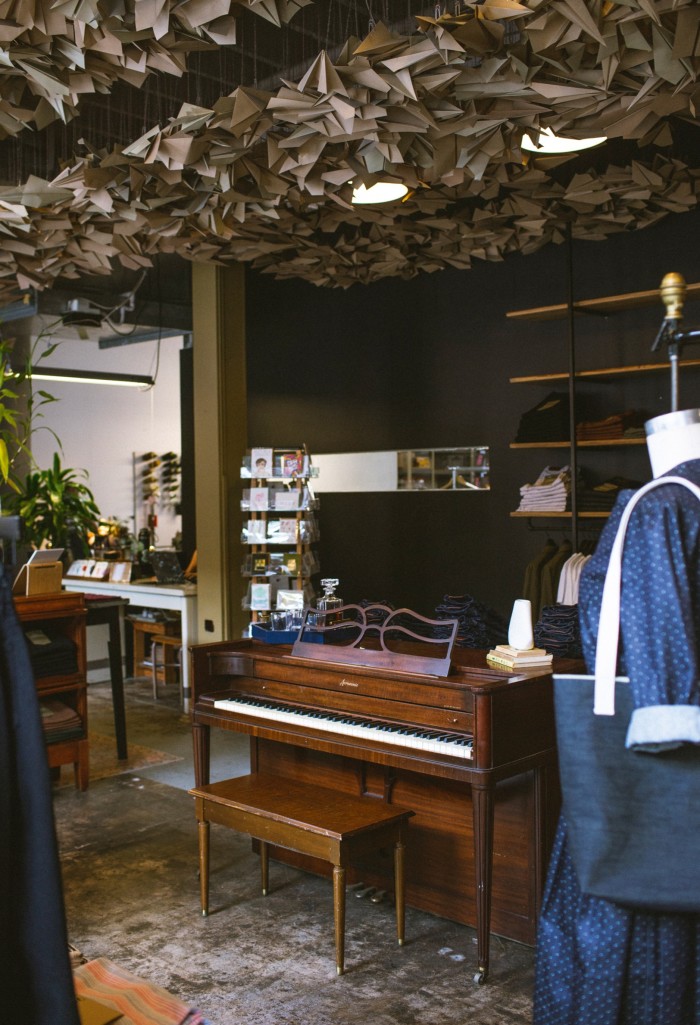
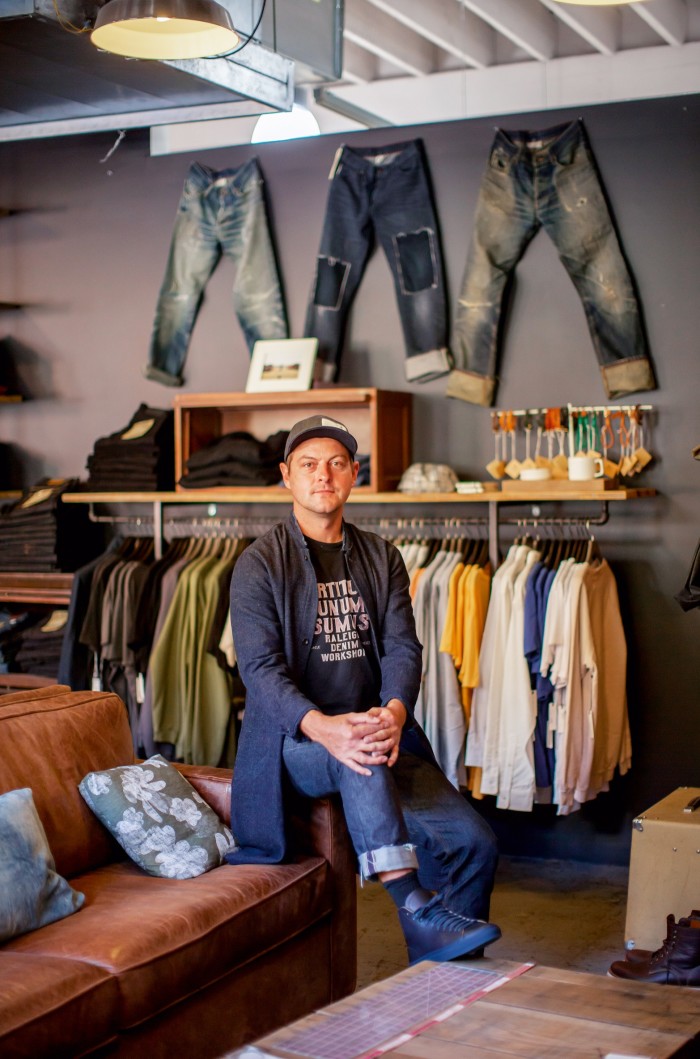
Musicians in some of those bands are also customers: Win Butler of Arcade Fire, Justin Vernon of Bon Iver, hip-hop artist J Cole and soul singer Leon Bridges. “And The National come through every time – they bring their families, hang out in the shop, and everyone in the workshop goes to the show.”
The quiet times in 2020 allowed Lytvinenko to work on something he’s wanted for a while: custom orders. They’d been doing them privately already – he’s made 25 pairs of custom jeans for Brad Pitt – and are offering the service more widely this year. “It brought me back to our roots,” says Lytvinenko. “It’s like making wine. You cannot copy what one winemaker does – you could grow the same grape next door, but the intrinsic parts of the soil, the way people make things – it’s impossible to copy what someone else does. I love that.”
319 West Martin Street, Raleigh, NC 27601 (raleighdenimworkshop.com)
Comments